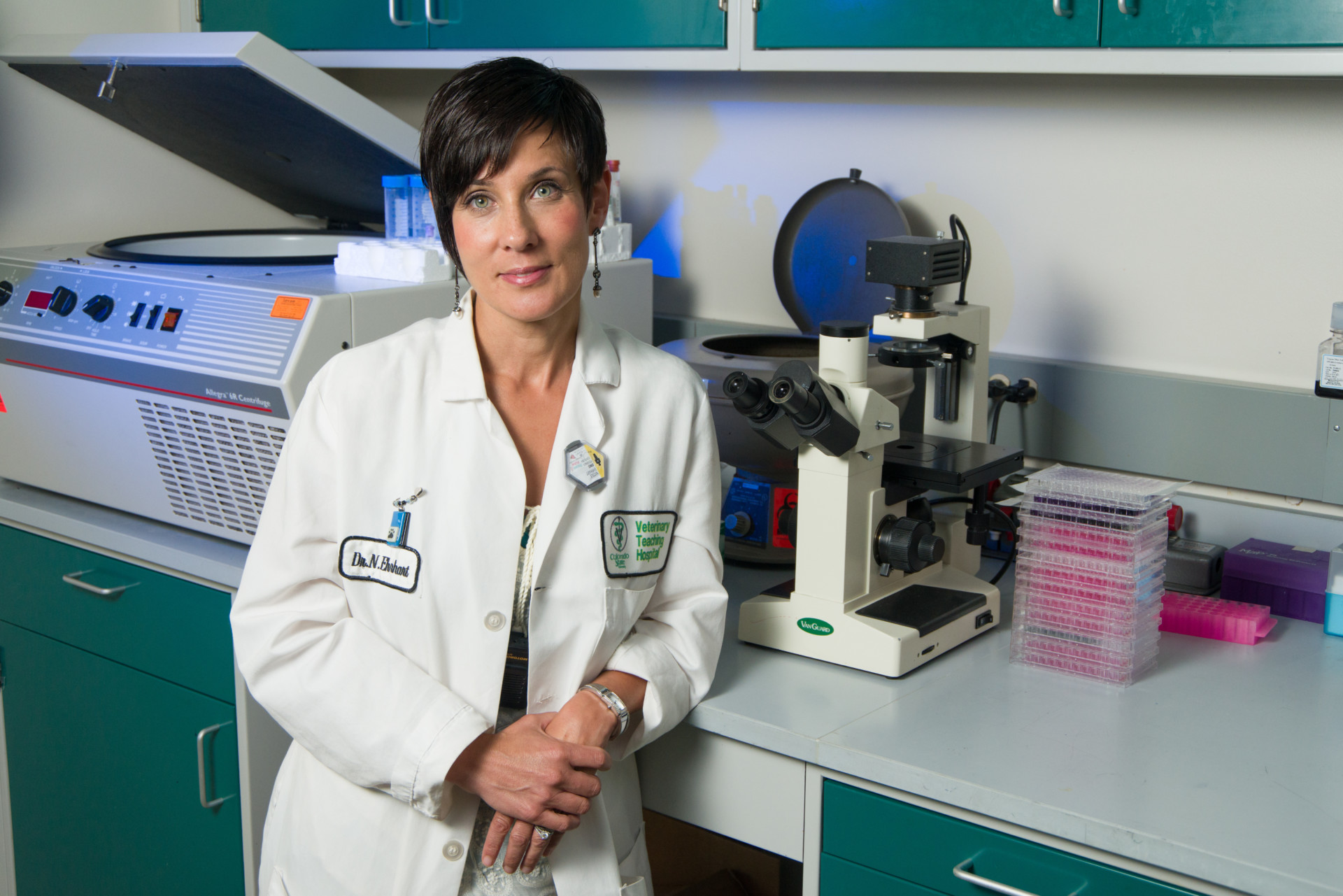
Dr. Nicole Ehrhart, director of the Columbine Health Systems Center for Healthy Aging at Colorado State University, is one of three scientists leading an effort to help the most vulnerable people in our communities during the coronavirus pandemic. As announced May 20 by the State of Colorado and CSU, the research – which involves testing asymptomatic health care workers in skilled nursing facilities – will be expanded, thanks to promising early research. In the weeks to come, CSU investigators will run tests for up to 45,000 workers and nursing home residents in the state.
Ehrhart, a veterinarian and professor of surgical oncology, talked with SOURCE about the research project, and what comes next.
Q: What’s the team’s approach for ramping up this research?
Ehrhart: The ramp-up has to be really quick. We will be enlisting graduate students and lab techs that were furloughed, so they already have the skills we need. The tests will be processed at the Veterinary Diagnostic Laboratories at CSU, which is run by Dr. Kristy Pabilonia.
Q: How will the residential facilities be selected?
Ehrhart: It’s going to be more of a statewide effort, guided by state officials to prioritize certain facilities. We will be working with a much larger number of skilled nursing facilities than we were able to test with our pilot project. We will test workers and residents, with their consent. In our pilot study, we were only testing asymptomatic workers.
Q: What are the results you’ve seen so far, from the pilot study?
Ehrhart: As we have continued to test and identify people who are asymptomatic, the number of new positive cases of COVID-19 among workers has decreased over time, so we believe that by identifying asymptomatic positive people in skilled nursing facilities and asking them to stay home and self-isolate, we are changing the transmission patterns and protecting others. The data is still being analyzed, so we hope to have more to share soon.
Q: What’s the timeframe for the expanded testing?
Ehrhart: We’ll be doing this work between now and Sept. 1, and we’ll provide a report to the state by the end of September. Along the way, we will also provide interim reports.
Q: How does it feel to have had this successful pilot project be recognized by the state, and expanded in a major way?
Ehrhart: It’s super rewarding because on a personal level, everybody wants to do something during this pandemic. It feels good that we’re helping. We started this project with the intentional hope that we’d be saving lives and I believe we are. We helped bring skilled nursing facilities’ unique needs to the attention of the public and the state, and we’ll continue to advocate for this kind of planning so that we can continue to mitigate any new outbreaks.
We are providing a picture that nobody else is looking at, which is continued surveillance over time. Other surveillance testing programs have focused on one-time testing of a population, and ours provides a more dynamic understanding of how transmission can be changed over time.
From here on out, it will be important to make risk-informed choices about how to operationalize changes in facilities. When and how do you lift restrictions with the goal to get people and their families back together? Those questions need more than just a single snapshot picture.
It also feels really good that we at CSU are among the first ones doing longitudinal surveillance of COVID-19. While much of this effort is aimed at protecting people and understanding how to prevent disease from getting to them, we also want to determine how people can return to a life that’s a better quality of life for them. Being in isolation is devastating to the mental health and cognitive health of these residents, and overall well-being needs to be a part of decision-making.
Q: What else would you like to share about this project?
Ehrhart: This is an opportunity to build relationships with other skilled nursing facilities for the future and to showcase CSU as a partner, in a way we wouldn’t have had the opportunity to do before the pandemic. These relationships will benefit CSU and communities across the state, providing a stronger bridge to bring healthy aging into the mainstream of people’s daily lives.
In return, we’ll have a greater and deeper understanding of what the issues are that these communities are facing. We sometimes fail to reach out directly to the groups we are studying, to the people on the frontlines, living with challenges. If you don’t have partnerships with them, you’re going to miss the mark. That’s what we’re here for.
I’d also like to add that I’m incredibly proud of our state for prioritizing this kind of testing in skilled nursing facilities and supporting CSU in that effort. It says something really important about our state that this is the type of research they are prioritizing – that we care for every Coloradan.
It’s a refreshing approach and it supports the idea that older Coloradans are a vital part of our communities, and that we want to ensure they have not only the ability to contribute to society but that they also have an opportunity to live their best lives. That’s why people come to Colorado. It’s a really wonderful value statement that we are seeing our state support in a tangible manner.
Learn more about the new partnership between CSU and the State of Colorado: https://col.st/EpmRr